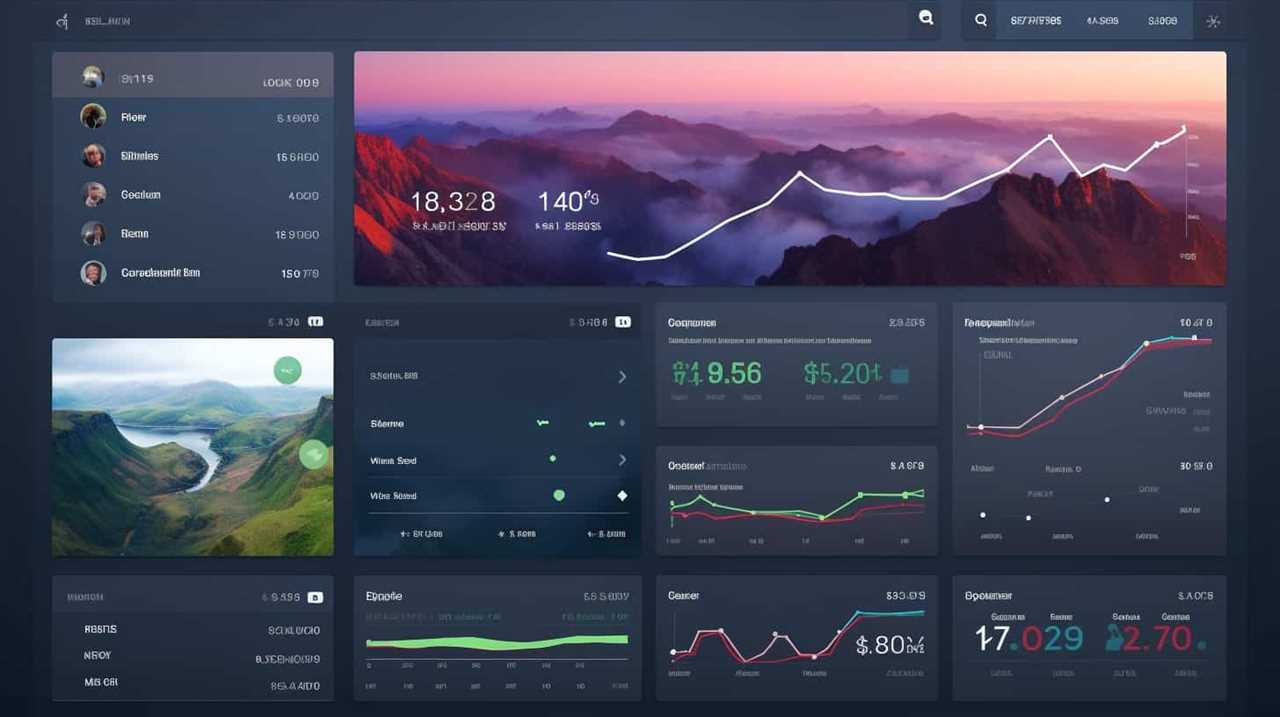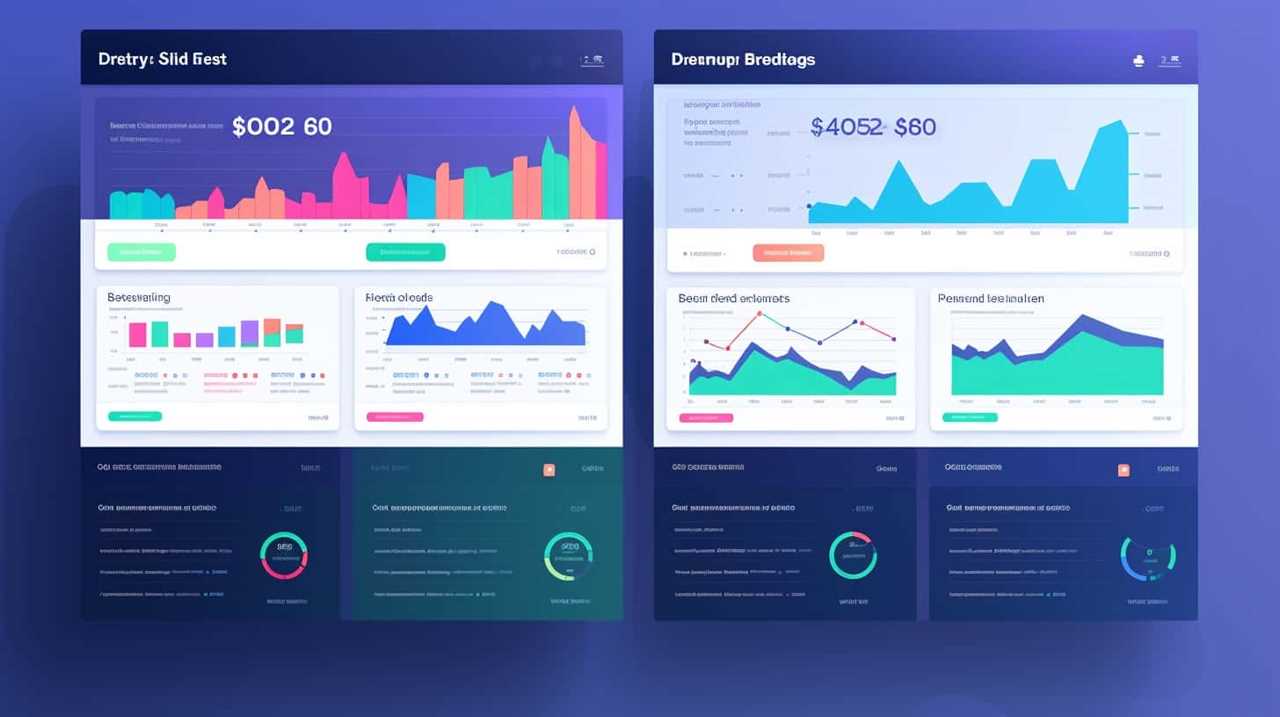Keyword Research
How to Do Seo With Examples

Our commitment lies in showcasing how simple and effective SEO can be. Our comprehensive manual will guide you through each detail of optimizing your website for search engines, one step at a time.
From conducting keyword research to building high-quality backlinks, we’ll cover it all. And to make things even better, we’ll provide you with real-life examples that demonstrate the power of SEO.
Get ready to master the art of SEO and take your website to new heights!
Key Takeaways
- Implement SEO ranking factors to improve website visibility and increase organic traffic.
- Conduct keyword research and optimization to target specific keyword phrases with lower competition and higher conversion rates.
- Analyze and optimize on-page elements such as content, meta tags, and URL structure to ensure relevance and improve search engine visibility.
- Implement link building strategies to increase the number of high-quality backlinks and build relationships with relevant website owners.
Understanding SEO Basics
Let’s dive into the basics of SEO and understand how it works.

To achieve a high search engine ranking, it’s important to implement SEO ranking factors and follow SEO best practices.
SEO ranking factors are the elements that search engines consider when determining the relevance and authority of a website. These factors include website speed, mobile-friendliness, quality content, backlinks, and user experience.
By optimizing these factors, you can improve your website’s visibility and increase organic traffic.
SEO best practices involve techniques such as keyword optimization, meta tags, proper URL structure, and internal linking. By implementing these strategies, you can enhance your website’s search engine visibility and attract more targeted visitors.

Now that we’ve a solid understanding of SEO basics, let’s move on to the next step: conducting keyword research.
Conducting Keyword Research
Now that we have a solid understanding of SEO basics, we can delve into the next step of conducting keyword research. Keyword research is a crucial part of any SEO strategy as it helps us identify the words and phrases that people are using to search for information related to our website or business. One effective way to conduct keyword research is through competitor analysis. By analyzing the keywords that our competitors are targeting, we can gain insights into what is working in our industry and identify opportunities that we may have missed. Another important aspect of keyword research is identifying long tail keywords. These are longer and more specific keyword phrases that have less competition but can still drive targeted traffic to our website. By incorporating competitor analysis and long tail keywords into our keyword research process, we can optimize our website for maximum visibility and attract the right audience.
| Competitor Analysis | Long Tail Keywords |
|---|---|
| Identify competitors | Identify specific keyword phrases |
| Analyze their keyword rankings | Lower competition and higher conversion rates |
| Identify opportunities and gaps | Targeted traffic |
| Understand industry trends | Improve organic search visibility |
| Optimize website for maximum visibility | Target niche audience |
Optimizing On-Page Elements
To optimize on-page elements, we start by analyzing and optimizing the content, meta tags, and URL structure of our website. Here are four on-page optimization techniques to improve our SEO content strategy:
- Content Optimization: Ensure our content is relevant, informative, and well-structured. Use relevant keywords naturally and include headers, bullet points, and images to enhance readability.
- Meta Tag Optimization: Craft compelling meta titles and descriptions that accurately represent the page’s content and entice users to click. Include relevant keywords to improve search engine visibility.
- URL Structure Optimization: Create clean and descriptive URLs that include relevant keywords. Avoid lengthy URLs and use hyphens to separate words for better readability.
- Internal Linking: Link relevant pages within our website to improve navigation and spread link equity. Use descriptive anchor text that includes relevant keywords.
By optimizing these on-page elements, we can enhance our website’s visibility and user experience.

Now let’s explore building high-quality backlinks to further improve our SEO strategy.
Building High-Quality Backlinks
When it comes to building high-quality backlinks, there are two key points to consider: link outreach strategies and link building techniques.
Link outreach strategies involve reaching out to other websites or individuals to request a backlink.
On the other hand, link building techniques refer to the methods used to acquire those backlinks.

By implementing effective link outreach strategies and utilizing proven link building techniques, we can increase the number of high-quality backlinks pointing to our website.
Ultimately, this will improve our SEO efforts.
Link Outreach Strategies
We actively engage in link outreach strategies to build high-quality backlinks. Here are four effective techniques we use to enhance our link building efforts:
- Link Prospecting: We conduct thorough research to identify websites in our niche that have the potential to provide valuable backlinks. This involves analyzing their relevance, authority, and trustworthiness.
- Outreach Email Templates: We create personalized email templates that stand out and grab the attention of website owners. These templates include compelling subject lines, personalized introductions, and clear requests for backlinks.
- Building Relationships: We understand the importance of building genuine relationships with website owners. By engaging in meaningful conversations, offering value, and showing appreciation for their content, we increase the likelihood of them linking to our website.
- Guest Posting Opportunities: We actively seek out guest posting opportunities on authoritative websites in our industry. This allows us to showcase our expertise, provide valuable content, and earn high-quality backlinks.
With these strategies, we maximize our chances of acquiring high-quality backlinks and improving our website’s SEO performance.

Now, let’s dive into the next section about link building techniques.
Link Building Techniques
Continuing with our link building efforts, we employ various techniques to ensure the acquisition of high-quality backlinks. One of the most effective outreach strategies we use is reaching out to relevant websites and influencers in our industry. By establishing genuine relationships and offering valuable content, we increase the chances of them linking to our website naturally.
Another technique we employ is guest blogging on authoritative websites. This allows us to not only showcase our expertise but also earn backlinks from reputable sources.
Additionally, we actively participate in online communities and forums, where we contribute valuable insights and provide helpful information. This helps us build relationships with other industry professionals and earn backlinks organically.

These techniques, when done correctly, contribute to natural link building and enhance our website’s authority and visibility in search engine rankings.
Now, let’s move on to the next section about creating engaging and SEO-friendly content.
Creating Engaging and SEO-Friendly Content
To optimize your website for search engines, it’s essential to create engaging and SEO-friendly content. Here are four tips to help you achieve this:
- Create shareable content: Craft content that’s valuable and interesting to your target audience. Make it easy for them to share your content on social media platforms, increasing your reach and visibility.
- Improve user experience: Ensure that your website is user-friendly and easy to navigate. Use clear headings, bullet points, and subheadings to organize your content. Optimize page loading speed and make sure your website is mobile-friendly.
- Use relevant keywords: Conduct keyword research to identify the terms and phrases your audience is searching for. Incorporate these keywords naturally throughout your content to improve its visibility in search engine results.
- Write compelling headlines: Grab your readers’ attention with catchy and informative headlines. Make sure your headlines accurately reflect the content of your page to improve click-through rates.
Utilizing Technical SEO Techniques
When it comes to utilizing technical SEO techniques, there are three key points to focus on:

- Crawlability and indexing: Ensuring that search engine bots can easily crawl and index your website is crucial for visibility.
- Page speed optimization: Optimizing your page speed helps improve user experience and can positively impact your search engine rankings.
- Structured data implementation: Implementing structured data helps search engines understand the content on your website better, leading to enhanced visibility in search results.
Crawlability and Indexing
Our goal is to ensure that every page on our website is easily accessible and indexed by search engines. To achieve this, we need to focus on crawlability and indexing.
Here are four key techniques to consider:
- Optimizing website architecture: A well-organized and logical website structure helps search engines navigate and understand your content better. Use clear and descriptive URLs, create a hierarchical structure, and interlink related pages.
- Creating an XML sitemap: An XML sitemap provides search engines with a roadmap of your website’s pages. By submitting it to search engines, you can ensure that all your important pages are discovered and indexed efficiently.
- Fixing crawl errors: Regularly monitor your website for crawl errors, such as broken links or inaccessible pages. Fixing these issues promptly helps search engines crawl and index your site more effectively.
- Implementing structured data: Adding structured data markup to your website helps search engines understand your content in a more meaningful way. This can enhance your search engine visibility and increase the chances of appearing in rich snippets.
Page Speed Optimization
We can greatly enhance website performance by optimizing page speed through technical SEO techniques.
One important aspect of page speed optimization is mobile optimization. With the increasing number of users accessing websites on mobile devices, it’s crucial to ensure that your website is optimized for mobile viewing. This includes minimizing the use of large images and using responsive design to ensure that your website adapts to different screen sizes.

Another key factor in page speed optimization is image optimization. Large image files can significantly slow down page load times. By compressing images and using the appropriate file formats, you can reduce the file size without compromising image quality.
Additionally, implementing lazy loading techniques can further improve page load times by loading images only when they’re in the user’s view.
Structured Data Implementation
To continue optimizing our website’s page speed, we can implement structured data using technical SEO techniques. Structured data markup, also known as schema.org implementation, helps search engines understand the content on our website and display it in a more meaningful way to users.
Here are four reasons why structured data implementation is important:

- Enhanced search results: By marking up our content with structured data, we can provide search engines with valuable information about our website, such as product details, reviews, and ratings. This can lead to rich snippets in search results, increasing visibility and click-through rates.
- Improved user experience: Structured data helps search engines display relevant information directly in search results, making it easier for users to find what they’re looking for without even visiting our website.
- Increased visibility on voice search: With the rise of voice assistants like Siri and Alexa, structured data becomes even more crucial. By implementing schema.org markup, we can optimize our website to appear in voice search results, capturing a larger audience.
- Future-proofing our website: As search engines continue to evolve, structured data is becoming an essential aspect of SEO. By staying ahead of the curve and implementing schema.org markup, we can ensure our website remains relevant and visible in the ever-changing digital landscape.
Implementing structured data using technical SEO techniques is a powerful way to optimize our website for improved search visibility, user experience, and future-proofing.
Monitoring and Analyzing SEO Performance
Effective monitoring and analysis of SEO performance is crucial for optimizing website rankings and driving organic traffic. To track and measure SEO success, it is essential to use reliable tools and metrics. Here is a table that highlights four key metrics for monitoring and analyzing SEO performance:
| Metric | Description |
|---|---|
| Organic Traffic | The number of visitors that come to your website through search engines. |
| Keyword Rankings | The position of your website in search engine results for targeted keywords. |
| Click-Through Rate (CTR) | The percentage of users who click on your website’s link in search results. |
| Bounce Rate | The percentage of visitors who leave your website after viewing only one page. |
Frequently Asked Questions
How Long Does It Typically Take to See Results From SEO Efforts?
Typically, it takes time to see results from SEO efforts. The SEO results timeline can vary depending on various factors. It’s important to measure SEO success regularly to track progress and make necessary adjustments.
What Are the Most Common SEO Mistakes That Should Be Avoided?
When it comes to SEO, there are common mistakes that should be avoided. By understanding these mistakes and implementing effective SEO strategies, we can ensure better results for our website.

Can SEO Be Done Effectively Without Hiring an SEO Agency?
Yes, we can definitely achieve SEO effectiveness without hiring an SEO agency. With the right knowledge and tools, we can confidently tackle DIY SEO and optimize our website for improved rankings and visibility.
Is It Necessary to Constantly Update and Modify SEO Strategies Over Time?
Yes, it is necessary to constantly update and modify SEO strategies over time. The importance of keyword research in SEO and the role of user experience in SEO success make staying current crucial for achieving optimal results.
How Does Mobile Optimization Impact SEO Rankings?
Mobile optimization, specifically mobile first indexing, is crucial for SEO rankings. It impacts rankings by considering the responsiveness and speed of a website on mobile devices. Page load speed is a significant factor in determining SEO rankings.
Conclusion
In conclusion, mastering SEO is essential for improving website visibility and driving organic traffic. By understanding the basics, conducting thorough keyword research, optimizing on-page elements, building high-quality backlinks, and creating engaging content, one can achieve great results.

Additionally, utilizing technical SEO techniques is crucial for ensuring that search engines can crawl and index your website effectively. This includes optimizing site speed, implementing schema markup, and improving mobile-friendliness.
Furthermore, monitoring and analyzing SEO performance is necessary for making necessary adjustments and improvements. This involves tracking keyword rankings, monitoring website traffic and engagement metrics, and identifying areas for optimization.
With dedication and strategic implementation, anyone can succeed in enhancing their website’s search engine rankings and attracting more visitors.
Keyword Research
How to Do Keyword Research on Semrush

Are you prepared to become an expert in keyword research using Semrush? We’ve got all the resources you need!
In this article, we’ll guide you through the process of setting up your Semrush account.
We’ll also help you understand its powerful keyword research features and how to conduct initial research.
Additionally, we’ll show you how to analyze keyword metrics and competition, refine your keyword list, and implement your findings.

Get ready to take your SEO strategy to the next level with Semrush!
Key Takeaways
- Sign up for a Semrush account and set up your website details
- Connect your Google Analytics and Google Search Console accounts to Semrush
- Utilize Semrush’s keyword research tools for content optimization and focus on long tail keywords
- Analyze competitors’ keyword strategies to refine your own approach and gain a competitive edge
Setting up Your Semrush Account
First, we’ll guide you through the process of setting up our Semrush account.
When exploring Semrush’s account management features, it’s crucial to understand how to maximize the benefits of its keyword tracking capabilities.
Setting up your Semrush account is a straightforward process. After signing up, you’ll be prompted to enter your website’s details and connect your Google Analytics and Google Search Console accounts. This allows Semrush to gather data about your website’s performance and keywords.

Once you’ve completed these steps, you can start exploring Semrush’s account management features, such as tracking your organic search positions, monitoring your competitors, and analyzing your website’s overall visibility.
Understanding Semrush’s account management features will lay the foundation for effectively utilizing its keyword tracking capabilities in the subsequent section about ‘Understanding Semrush’s Keyword Research Features’.
Understanding Semrush’s Keyword Research Features
Continuing our exploration of Semrush’s account management features, let’s delve into understanding Semrush’s keyword research capabilities.
When it comes to optimizing your content for search engines, Semrush’s keyword research tools are invaluable. Here are three key features to help you make the most of your keyword research:

- Content optimization: Semrush’s keyword research tools provide insights into the keywords your target audience is searching for. This allows you to optimize your content to align with their search intent and increase your chances of ranking higher in search engine results pages.
- Long tail keywords: Semrush’s keyword research emphasizes the importance of long tail keywords. These longer and more specific phrases have lower competition and higher conversion rates, making them a crucial element in your SEO strategy.
- Competitor analysis: Semrush’s keyword research allows you to analyze your competitors’ keyword strategies. By identifying the keywords they’re targeting, you can gain valuable insights and refine your own keyword strategy to outperform them.
Understanding and leveraging Semrush’s keyword research tools will give you a competitive edge in optimizing your content and driving organic traffic to your website.
Conducting Initial Keyword Research
Now, let’s delve into how we can conduct our initial keyword research on Semrush.
When it comes to finding relevant keywords, there are a few effective strategies we can employ. One of them is focusing on long tail keywords, which are more specific and have lower competition. By targeting these keywords, we can attract highly targeted traffic to our website.
Additionally, utilizing competitor analysis for keyword research can provide valuable insights into the keywords that are driving traffic to our competitors’ websites. This information can help us identify untapped opportunities and optimize our own content.

By employing these strategies, we can lay the foundation for a successful keyword research campaign.
In the next section, we’ll discuss how to analyze keyword metrics and competition to further refine our keyword selection and strategy.
Analyzing Keyword Metrics and Competition
To further refine our keyword selection and strategy, we can analyze keyword metrics and competition on Semrush. This step is crucial in choosing the right keywords for your SEO strategy.
By analyzing keyword difficulty and search volume, we can better target our audience and increase our chances of ranking higher in search engine results.

Here are three key factors to consider when analyzing keyword metrics and competition:
- Keyword Difficulty: This metric helps us understand how challenging it will be to rank for a specific keyword. A higher difficulty score indicates stronger competition, while a lower score suggests a better chance of ranking.
- Search Volume: This metric shows how many people are searching for a particular keyword. It helps us identify popular keywords with a higher potential for driving traffic to our website.
- Competitor Analysis: By examining the competition for our chosen keywords, we can gain insights into their strategies, strengths, and weaknesses. This information allows us to refine our own approach and find gaps in the market.
Analyzing these metrics and competition will help us make informed decisions about the keywords to target, ultimately improving our SEO strategy.
Refining Your Keyword List and Implementing Your Findings
After analyzing keyword metrics and competition on Semrush, we refine our keyword list and implement our findings.
Refining our keyword list involves removing irrelevant keywords and focusing on those with high potential for driving organic traffic. We also identify long-tail keywords, which have lower competition and higher conversion rates.

Implementing keyword optimization strategies is crucial for maximizing organic traffic growth. This includes incorporating targeted keywords into website content, meta tags, and URLs. It’s also important to optimize on-page elements such as headings, image alt tags, and internal links.
Additionally, monitoring keyword rankings and making necessary adjustments is essential for staying ahead of the competition.
Frequently Asked Questions
Can I Use Semrush for Keyword Research on Platforms Other Than Google?
Yes, you can use Semrush for keyword research on social media platforms and e-commerce platforms. It provides valuable insights and data to help you optimize your keyword strategy across different platforms.
How Often Should I Update My Keyword List?
We update our keyword list regularly to ensure we stay up to date with search trends and maximize the benefits of our research. The frequency of updating the keyword list depends on the dynamic nature of our industry.

Can I Track the Performance of My Keywords Over Time?
Yes, we can track the performance of our keywords over time. It is important to track keyword rankings to understand how our SEO efforts are impacting search visibility and to make informed optimization decisions.
Are There Any Alternative Tools to Semrush for Keyword Research?
There are several alternative keyword research tools available that can be used for keyword research. It is important to compare these tools and consider their pros and cons before making a decision.
How Can I Find Long-Tail Keywords Using Semrush?
Finding long-tail keywords on Semrush helps us unlock the benefits of using them in SEO. By optimizing our content with these specific keywords, we can attract targeted traffic and improve our search rankings. Here are some tips for optimizing content with long-tail keywords.
Conclusion
In conclusion, conducting keyword research on Semrush is crucial for optimizing your website’s visibility and driving organic traffic.

By setting up your account, exploring the platform’s features, and analyzing keyword metrics and competition, you can refine your keyword list and implement effective strategies.
Remember, success lies in finding the right keywords that resonate with your target audience and align with your business goals.
So, start your research journey on Semrush and unlock the potential for online success.
Keyword Research
How to Do Keyword Research With Google

In our pursuit of digital dominance, grasping the significance of keywords is crucial. These concise yet powerful words are essential for online achievement. So, what’s the optimal way to take advantage of this opportunity?
Fear not, for we have Google by our side. With its Keyword Planner, we can uncover valuable keyword ideas. And with Google Trends, we can analyze competition.
Together, let’s embark on a journey of keyword research using the tools at our disposal.
Key Takeaways
- Keyword research helps identify relevant and high-performing keywords for a website.
- Long tail keywords target specific niche markets and attract a focused audience.
- Google Keyword Planner provides comprehensive keyword suggestions based on search volume, competition, and relevance.
- Google Trends provides insights on search volume and keyword trends over time.
Understanding the Importance of Keyword Research
Keyword research is an essential step in our digital marketing strategy as it helps us identify the most relevant and high-performing keywords for our website.

One of the benefits of long tail keywords in keyword research is their ability to target specific niche markets. By including more specific and descriptive phrases in our content, we can attract a more focused audience that’s more likely to convert.
Additionally, long tail keywords often have less competition, making it easier for our website to rank higher in search engine results.
Another crucial aspect of keyword research is understanding keyword intent. By analyzing the intent behind a user’s search query, we can optimize our website and content to align with their needs and preferences.
This not only improves our search engine rankings but also increases the chances of attracting qualified traffic to our website.

Using Google Keyword Planner for Keyword Ideas
We frequently rely on Google Keyword Planner to generate a multitude of keyword ideas for our digital marketing strategy. Here’s why it’s our go-to tool:
- Comprehensive keyword suggestions:
Google Keyword Planner provides a vast array of keyword ideas based on search volume, competition, and relevance. This allows us to explore a wide range of options and identify the most effective keywords for our campaigns. - Comparison with other tools:
One of the key advantages of Google Keyword Planner is its ability to compare keyword data with other tools. This feature helps us gain valuable insights and make informed decisions when selecting the right keywords for our targeting. - Long tail keyword targeting:
Google Keyword Planner also helps us identify long tail keywords, which are specific and highly targeted phrases. Using long tail keywords allows us to reach a more niche audience, resulting in better conversion rates and higher ROI.
Analyzing Keyword Competition With Google Trends
To assess keyword competition, we turn to Google Trends for valuable insights and data-driven analysis. Google Trends allows us to analyze search volume and identify keyword trends over time.
By entering a keyword or a group of keywords into Google Trends, we can see how their popularity has changed over the years and even compare different keywords to see which one is more popular. This information helps us understand the level of competition for a particular keyword and make informed decisions in our keyword research.
Utilizing Google Search Console for Keyword Insights
By leveraging the insights provided by Google Trends, we can now delve into the benefits of utilizing Google Search Console for valuable keyword insights.

Here are three key reasons why Google Search Console is an essential tool for advanced keyword research techniques:
- Performance Data: Google Search Console provides detailed performance data for your website, including the keywords that are driving organic traffic. This data allows you to identify high-performing keywords and optimize your content accordingly.
- Search Queries: With Google Search Console, you can see the exact search queries that users are entering to find your website. This information helps you understand user intent and refine your keyword targeting.
- Click-Through Rate (CTR) Analysis: Google Search Console provides CTR data for your website’s organic search results. By analyzing your CTR for different keywords, you can identify opportunities to improve your meta tags and increase your organic click-through rate.
Best Practices for Conducting Keyword Research With Google
Now let’s explore the best practices for conducting keyword research with Google and how it can enhance our understanding of user intent and drive organic traffic to our website.
When it comes to keyword research strategies for small businesses, it’s important to start by identifying relevant keywords that align with your target audience and business goals. Use tools like Google Keyword Planner or other keyword research tools to find high-volume, low-competition keywords.
Once you have a list of keywords, incorporate them strategically into your website content. Tips for optimizing website content with targeted keywords include placing them in the page title, meta description, headings, and throughout the body of the content. Remember to write naturally and provide valuable information to the users.

Regularly analyze and update your keyword strategy to stay ahead of the competition and drive more organic traffic to your website.
Frequently Asked Questions
How Can I Use Keyword Research to Improve My Website’s Search Engine Rankings?
To improve our website’s search engine rankings, we can use keyword research to optimize our content and implement the findings for on-page SEO improvements. It’s crucial for mastering search engine optimization.
Are There Any Alternative Tools or Platforms I Can Use for Keyword Research Besides Google Keyword Planner?
There are several alternative keyword research tools and platforms available, which can provide additional benefits when used alongside Google Keyword Planner. Using multiple tools allows for comprehensive and thorough keyword research.
Can I Use Google Trends to Analyze the Competition for Long-Tail Keywords?
Using Google Trends for competitor analysis is a great way to find profitable long-tail keywords. It allows us to see the popularity and seasonality of keywords, helping us make data-driven decisions for our keyword research.

How Can I Leverage the Data From Google Search Console to Enhance My Keyword Research Strategy?
To optimize our keyword research strategy, we can leverage the data from Google Search Console. It provides valuable insights into search queries, impressions, and CTR, helping us identify high-performing keywords and improve our content.
Are There Any Common Mistakes to Avoid When Conducting Keyword Research Using Google?
When it comes to keyword research, we’ve all made mistakes. But fear not! We’ll show you how to avoid common pitfalls and master the art of keyword research. Let’s dive in!
Conclusion
In the vast forest of online content, keyword research acts as our compass, guiding us to the hidden treasures of search engine visibility. Just as explorers rely on maps to navigate uncharted territories, we rely on Google’s tools to uncover valuable keywords.
With the power of Google Keyword Planner, Google Trends, and Google Search Console, we can analyze competition, gain insights, and optimize our content for success.

So, let’s embark on this digital quest armed with knowledge and make our mark in the online realm.
Keyword Research
How to Do Keyword Research

The advantages of incorporating long-tail keywords into content marketing approaches.
Are you ready to unlock the secrets of successful keyword research? We’ve got you covered.
In this article, we’ll guide you through the process step by step, helping you uncover the most valuable keywords for your target audience.
From brainstorming ideas to analyzing competition, we’ll show you how to refine your keyword list for maximum impact.

Get ready to take your SEO strategy to the next level and dominate the search engine rankings.
Let’s dive in and master keyword research together.
Key Takeaways
- Keyword research helps understand the language and phrases used by the target audience.
- Focusing on long tail keywords attracts more qualified traffic.
- Local SEO allows targeting customers in specific geographical areas.
- Keyword research helps identify popular search terms.
Understanding the Importance of Keyword Research
Keyword research is crucial for our online success. It helps us understand the language and phrases our target audience uses when searching for information, products, or services online. Two important aspects of keyword research are the role of long tail keywords and the impact of local SEO.
Long tail keywords play a significant role in keyword research. These are longer, more specific phrases that are less competitive but highly targeted. By focusing on long tail keywords, we can attract more qualified traffic to our website, increasing the chances of conversion.

Local SEO also has a profound impact on keyword research. Optimizing our website for local search helps us target customers in specific geographical areas. It allows us to tailor our keywords to include location-specific terms, making it easier for local customers to find us.
Understanding the importance of long tail keywords and the impact of local SEO is essential for effective keyword research and ultimately, our online success.
Defining Your Target Audience and Goals
To effectively conduct keyword research, we must first define our target audience and establish our goals. Understanding your audience’s search intent is crucial in identifying the keywords they’re likely to use when searching online. This will help us create content that aligns with their needs and interests. Additionally, setting realistic goals is essential to measure the success of our keyword research efforts.
Here are four steps to help us define our target audience and goals:

- Conduct market research to identify our target audience’s demographics, interests, and online behavior.
- Analyze competitor websites and social media platforms to understand what keywords they’re targeting.
- Use tools like Google Analytics and social media analytics to gain insights into our audience’s search queries and engagement patterns.
- Clearly define our goals, whether it’s increasing website traffic, generating leads, or improving search engine rankings.
Generating Keyword Ideas
Now that we’ve defined our target audience and established our goals, let’s dive into generating keyword ideas.
Brainstorming techniques are a great way to come up with a wide range of keywords that could potentially attract our target audience. A brainstorming session can involve listing related terms, thinking about different aspects of our product or service, and considering the pain points or needs of our audience.
Additionally, conducting niche keyword research can help us identify specific keywords that are relevant to our industry or market segment. By focusing on these niche keywords, we can narrow down our keyword list to be more targeted and effective.
In the next section, we’ll discuss how to analyze keyword competition and volume, which will further refine our keyword selection process.

Analyzing Keyword Competition and Volume
Now, let’s delve into how we analyze the competition and volume of keywords to further refine our keyword selection process.
To effectively analyze keyword competition and volume, we follow these steps:
- Analyzing keyword trends: We examine the search trends of specific keywords to understand their popularity over time. This helps us identify which keywords are currently in demand and can guide our content creation strategy.
- Identifying high-value keywords: We look for keywords with a high search volume and low competition. These keywords have the potential to drive significant traffic to our website and attract more potential customers.
- Competitor analysis: We analyze the keywords that our competitors are targeting. This gives us insights into their keyword strategy and helps us identify opportunities to outperform them in search engine rankings.
- Keyword difficulty assessment: We evaluate the difficulty of ranking for specific keywords by considering factors such as domain authority, backlink profile, and content quality of the top-ranking pages. This helps us prioritize our keyword targeting efforts.
Refining Your Keyword List for Maximum Impact
After analyzing keyword competition and volume, we can now focus on refining our keyword list for maximum impact. Keyword optimization techniques are essential to ensure that our website ranks higher in search engine results and attracts relevant traffic.
One effective strategy is to use long tail keywords effectively. These are longer and more specific phrases that target niche audiences and have lower competition. By incorporating long tail keywords into our content, we can attract more qualified leads and increase conversion rates.

Additionally, refining our keyword list allows us to prioritize the most relevant and high-performing keywords. This helps us create targeted and compelling content that resonates with our audience and improves our overall SEO strategy.
Frequently Asked Questions
How Can I Determine the Search Volume and Competition for Specific Keywords?
To determine search volume and competition for specific keywords, we use search volume determination and competition analysis. It helps us understand the popularity and competitiveness of keywords, allowing us to make informed decisions for our keyword research strategy.
Are There Any Tools Available to Help With Keyword Research?
There are various tools available to assist with keyword research. These tools can provide valuable insights into search volume and competition, allowing us to optimize our content effectively. Using the best practices for keyword research is crucial for success.
How Do I Identify Long-Tail Keywords and Why Are They Important?
Identifying long-tail keywords is crucial for effective SEO. They are specific, less competitive, and have a higher conversion rate. Incorporating long-tail keywords in content marketing strategies improves search visibility and drives targeted traffic to your website.

Can I Use Competitor Analysis to Improve My Keyword Research?
Yes, competitor analysis can greatly enhance our keyword research. By analyzing our competitors, we can uncover untapped keyword opportunities and leverage their keyword data to create strategic and engaging content.
What Is the Significance of Local Keyword Targeting and How Can I Incorporate It Into My Research?
Local keyword targeting is crucial for optimizing our website for local search. Incorporating local SEO in keyword research helps us reach a targeted audience and improve our visibility in specific geographic areas.
Conclusion
In conclusion, conducting effective keyword research is crucial for achieving maximum impact in your online presence.
By understanding the importance of keyword research and defining your target audience and goals, you can generate relevant keyword ideas.

Analyzing keyword competition and volume helps you refine your keyword list strategically.
Remember, the key to success lies in finding the right keywords that resonate with your audience and drive organic traffic to your website.
So, stay strategic and start your keyword journey today!
-

 Expert Content Authority2 weeks ago
Expert Content Authority2 weeks agoThe Pillar of SEO: Why Content Consistency Matters Most
-

 Learning Center2 weeks ago
Learning Center2 weeks agoUncover How To Use ChatGPT to Write Effective Ad Copy
-

 Learning Center2 weeks ago
Learning Center2 weeks agoAI in 2024: 10 Things We are NOT Looking Forward To
-

 Holistic SEO3 weeks ago
Holistic SEO3 weeks agoHolistic Local SEO Tactics for Small Businesses
-

 Learning Center2 weeks ago
Learning Center2 weeks agoOptimize Your Digital Experience with Akamai CDN
-

 Learning Center3 weeks ago
Learning Center3 weeks agoExperience How GPT-4 Turbo Beats Claude 2: A Review
-

 Holistic SEO2 weeks ago
Holistic SEO2 weeks agoMaximize Engagement with YouTube Videos End Screens
-

 Learning Center3 weeks ago
Learning Center3 weeks agoMastering SEO through the Google SGE Lens: A Comprehensive Guide














